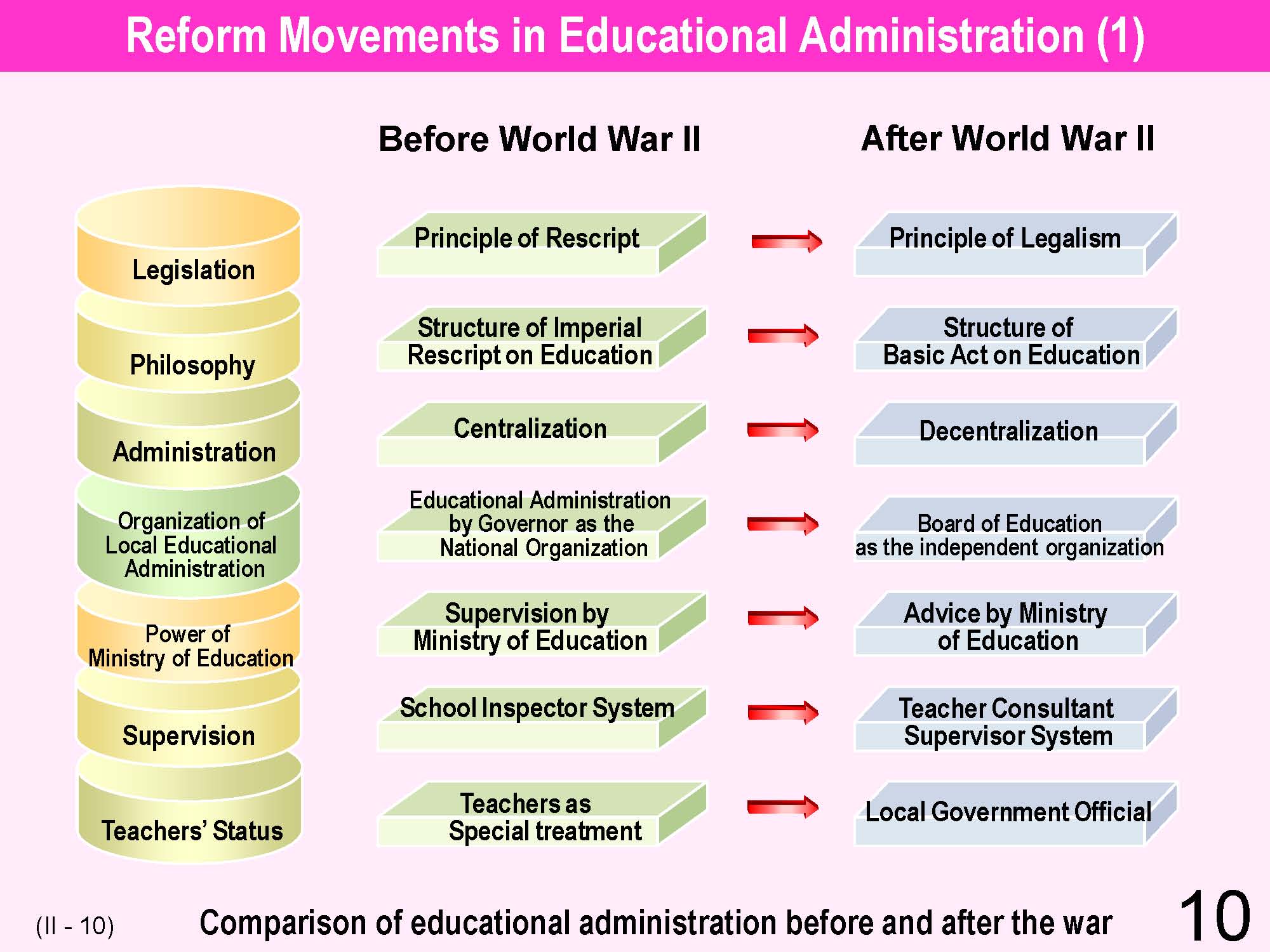| 10 | gII Japanese Educational Administration and Financeh | Previous | Next | JAPANESE |
|---|---|---|---|---|
 |
||||
| When comparing the pre-war and the post-war Japanese educational philosophy and responsibility there are three prominent features. First, before World War (, legislation re educational laws was based on the principle of Imperial Ordinance. After the war, it switched to the principle of legislative enactment embodied in the Constitution of Japan and the Fundamental Law of Education. Second, before the war, education was a national affair, not autonomous. While the Government was responsible for administration of schools and personnel management, regional entities were responsible for maintenance of school plan and the pay for teachers. After the war, whereas regions have responsibilities for education based on the principle of decentralization, the national government retains the functions to provide guidance and advice to the regional bodies. Third, before the war, educational authority in Japan was based on a top-down mechanism centered in the School Inspector System: Minister of Education (School Inspector) - Governor (Prefecture School Inspector and County School Inspector) - Mayor (Education Affairs Committee) - Principal and Teacher. After the war, however, the basic principle was adopted that the Ministry of Education and the Boards of Education are legally equivalent. | ||||
Please send your comments and concerns here
kamada@criced.tsukuba.ac.jp
Center for Research on International Cooperation in Educational Development(CRICED) University of Tsukuba
1-1-1, Tennodai, Tsukuba-shi, IBARAKI
305-857, JAPAN